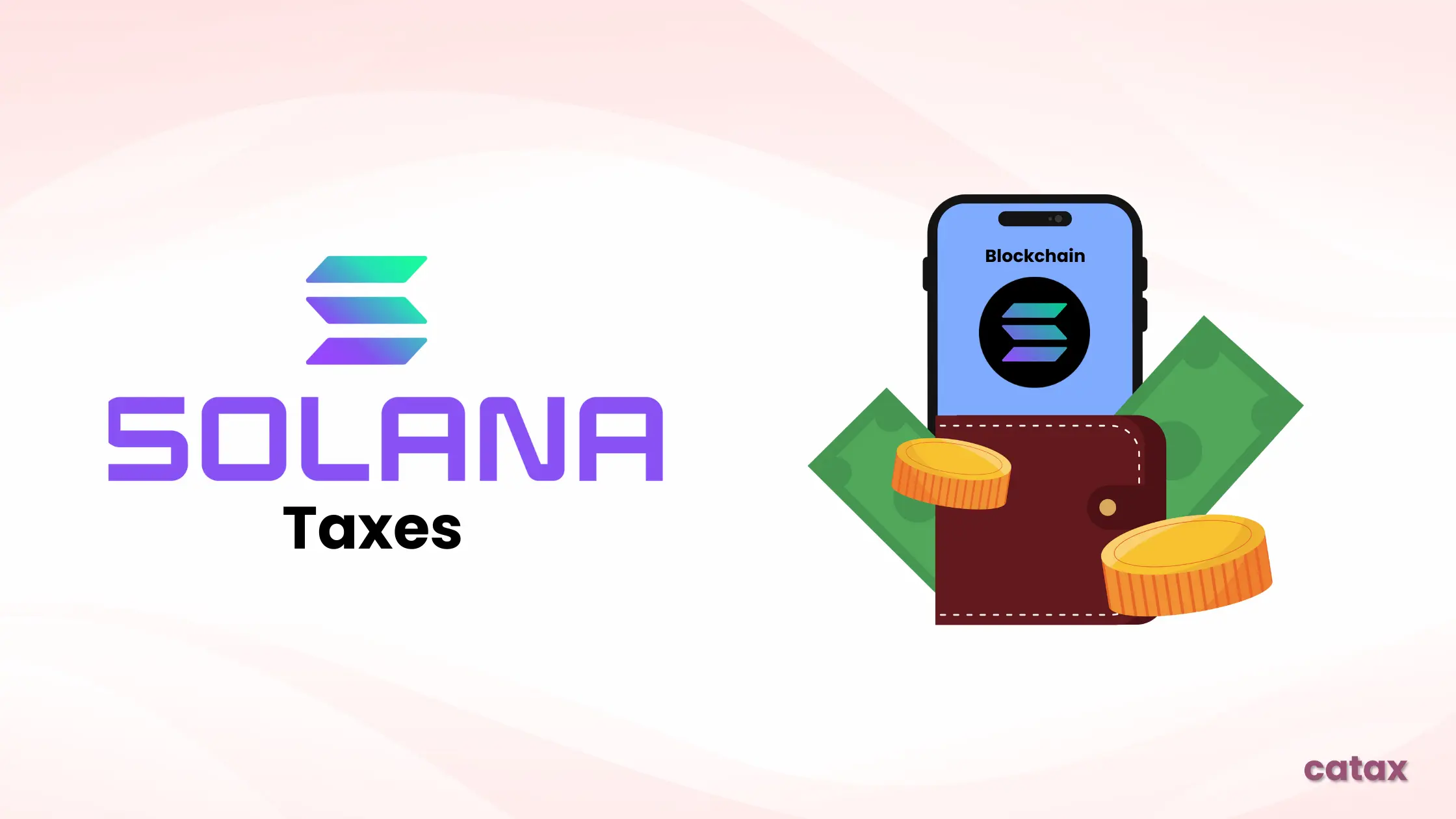Cryptocurrency tax regulations vary across countries, and Solana (SOL) transactions may be subject to taxation depending on local laws. Whether you buy, sell, trade, or stake SOL, it is essential to understand how tax authorities classify and tax these activities.
This guide outlines key tax considerations for Solana (SOL) investors and traders to help with Taxes.

How to Connect Your Solana Wallet with Catax
To track your Solana (SOL) transactions and calculate taxes, connect your wallet to Catax using these steps:
- Open your Solana wallet or block explorer (such as Phantom Wallet, Trust Wallet, MetaMask, or any other supported wallet).
- Copy your public wallet address or key.
On Catax:
- Log in to catax.app.
- Navigate to Integrations in the left sidebar.
- Click on Chain and search for Solana Wallet.
- Paste your public address and click Connect.
Are Solana (SOL) Transactions Taxable?
Solana transactions are subject to taxation in most countries. Governments classify cryptocurrencies as capital assets, property, or income, depending on usage.
Taxable events include:
- Selling Solana (SOL) for a profit (capital gains tax may apply).
- Exchanging SOL for another cryptocurrency (crypto-to-crypto trades may be taxable).
- Earning SOL through staking or rewards (some jurisdictions tax staking income upon receipt).
- Using SOL for purchases (spending SOL may create a capital gains tax obligation).
Each country has different regulations, so checking how Solana transactions are classified in your region is important.
Can Trading Fees and Other Costs Be Deducted?
Some tax authorities allow deductions for expenses incurred while trading cryptocurrency, while others do not.
Some countries allow deductions for:
- Trading fees paid to exchanges.
- Network fees (gas fees) for processing transactions.
- Crypto custody and security expenses.
Other countries limit deductions to:
- The cost of acquiring SOL, meaning only the purchase price is deductible when calculating taxable profits.
Checking your country’s tax rules before filing is necessary to determine which deductions apply.
How Is Staking Income Taxed?
Staking rewards from Solana (SOL) may be taxed differently based on jurisdiction.
- Some countries treat staking rewards as income and tax them at the time of receipt.
- Other countries classify staking rewards as capital gains and impose taxes only when the rewards are sold.
Knowing how your country taxes staking income helps prevent unexpected tax liabilities.
Does Holding Solana (SOL) Longer Reduce Taxes?
Some countries apply different tax rates based on how long an asset is held before selling.
Key tax structures include:
- Governments may tax short-term holdings (held for less than one year) at higher rates.
- Some countries offer lower tax rates for long-term holdings (held for more than one year).
- Certain jurisdictions apply a fixed tax rate on all crypto profits, regardless of the holding period.
Checking your country’s tax policies on short-term and long-term gains is recommended.
How to Stay Compliant with Solana (SOL) Tax Regulations
Many governments are increasing cryptocurrency regulations, making compliance essential. To avoid penalties:
- Understand how your country classifies and taxes Solana transactions.
- Verify whether trading fees, losses, and staking rewards are deductible.
- Maintain clear records of all transactions to support tax filings.
- Consult a tax professional if needed to ensure compliance with local laws.
